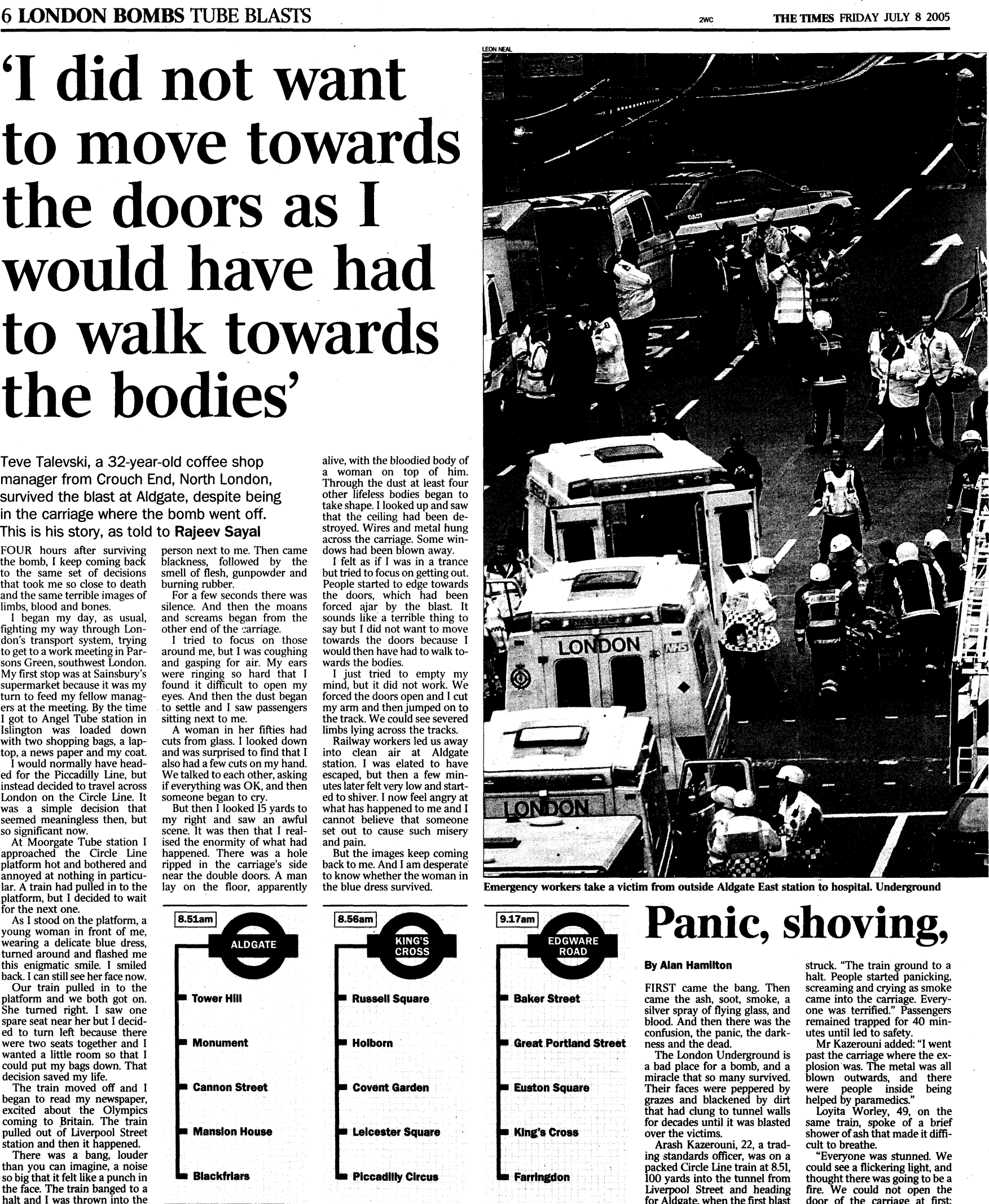By Anita Klich, Gale Ambassador at the University of Portsmouth, UK
On 7 July 2005, four suicide bombers launched attacks in London, killing 52 people and injuring many more. Since then, the government has tightened national security to avoid further incidents of this kind. Unfortunately, over a decade later, the United Kingdom has again become a target for terrorists. In such difficult times, the media’s influence is especially significant, as the selection of stories and tone of the news can construct the public agenda and shape people’s views and opinions. To understand and observe the changes that have occurred in the news coverage of terror attacks in recent times, it is helpful to examine news articles from the first, biggest terrorist attack in London. I was able to explore coverage of the 7 July 2005 bombings in Gale Primary Sources.

One article in The Times Digital Archive described the terrorist attack as a ‘mass murder’, and explained how terrorists detonated their bombs in different locations in London, causing widespread anxiety and uncertainty. At that time, Scottish leaders assured the public that ‘The terrorists will not succeed’, while George Galloway stated that Londoners ‘paid the price’ for Tony Blair’s actions in Iraq and Afghanistan. George Bush, the US president at that time, declared that ‘the war on terror goes on’ and expressed US support for Londoners.

Another article gave a witness’s point of view. Teve Talevski, a coffee shop manager who survived one of the blasts, described how he managed to survive, and how the attack has affected him – the trauma and distress he experienced while looking at the victims, and that he couldn’t believe that ‘someone set out to cause such misery and pain’.

Days after the attacks, the first victim of the bombings was named. Susan Levy, a mother of two, was commuting to work via the Piccadilly Line when the terrorist strode in. The article describes Mrs Levy as a model citizen, and outlines the scope of the tragedy on 7 July. The public mourning of victims can be seen as a form of both comforting the public and outlining that anyone could suffer from such an attack.

The media also outlined some of the positives that resulted from the tragic events, such as presenting ‘public acts of courage’ during the attacks. One article dedicated to this topic stated: ‘the past 72 hours have produced countless small acts of personal and private courage’. Similarly, Tim Hames emphasised that the fact that terrorists ‘managed to carry out four bombings in the capital emphatically does not mean that they are ‘winning’ the War on Terror, or that the authorities in Britain, the United States and elsewhere are ‘losing’’…terrorists ‘stand for what is an exercise in futility and failure’, and ‘the only means by which the terrorists can ‘win’ is if we lose our nerve’.
Although the July bombings took place nearly 12 years ago, the ‘war or terror’ continues; the issue of terrorism is as much, if not even more, striking, and the media remains a transmitter of information regarding acts of terror.

